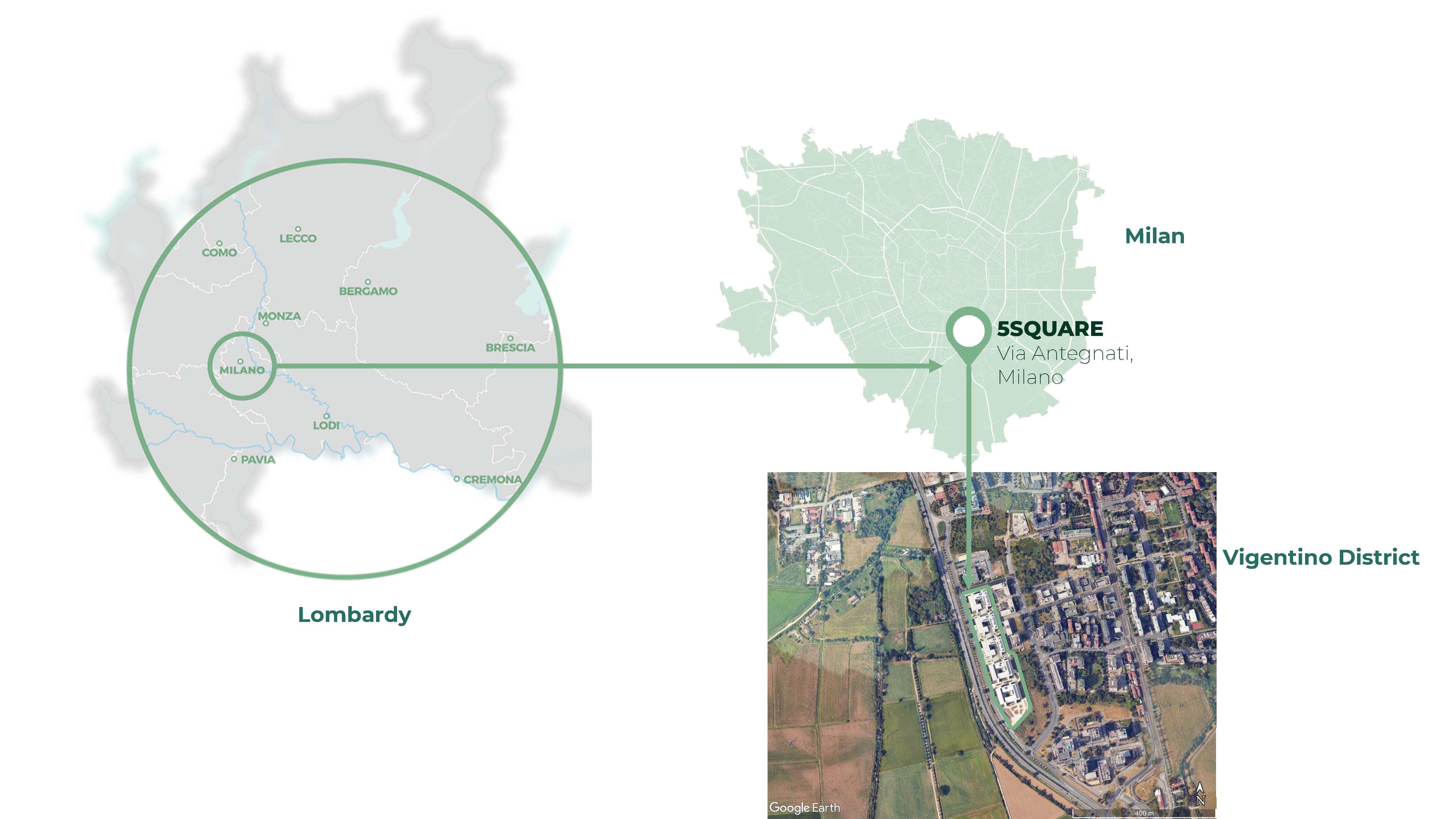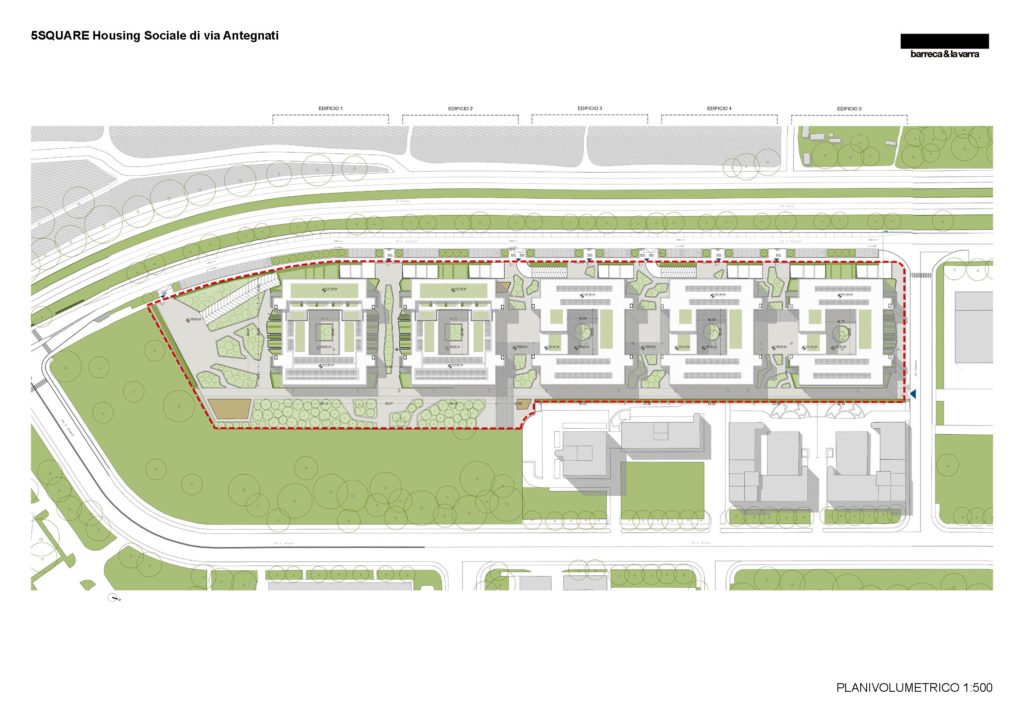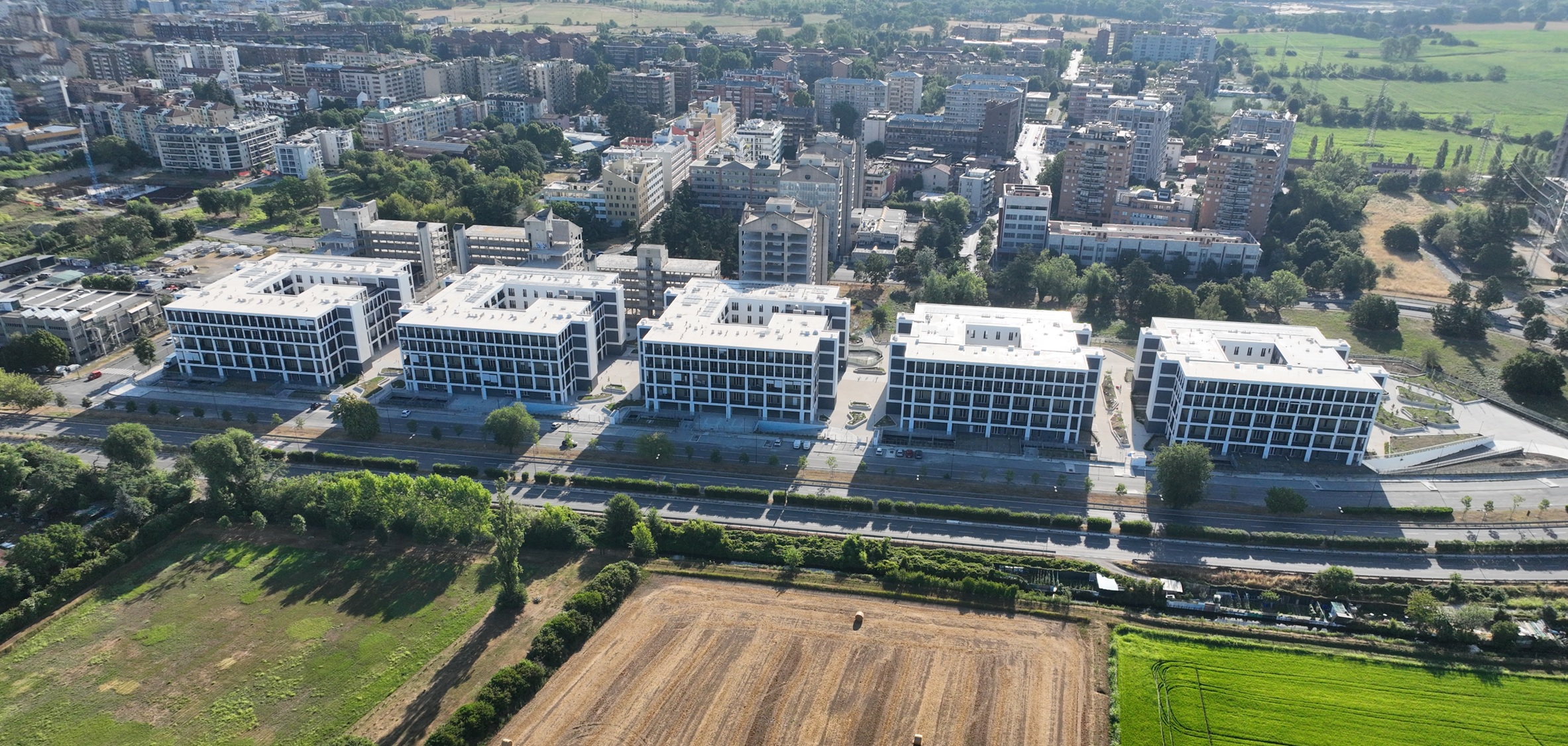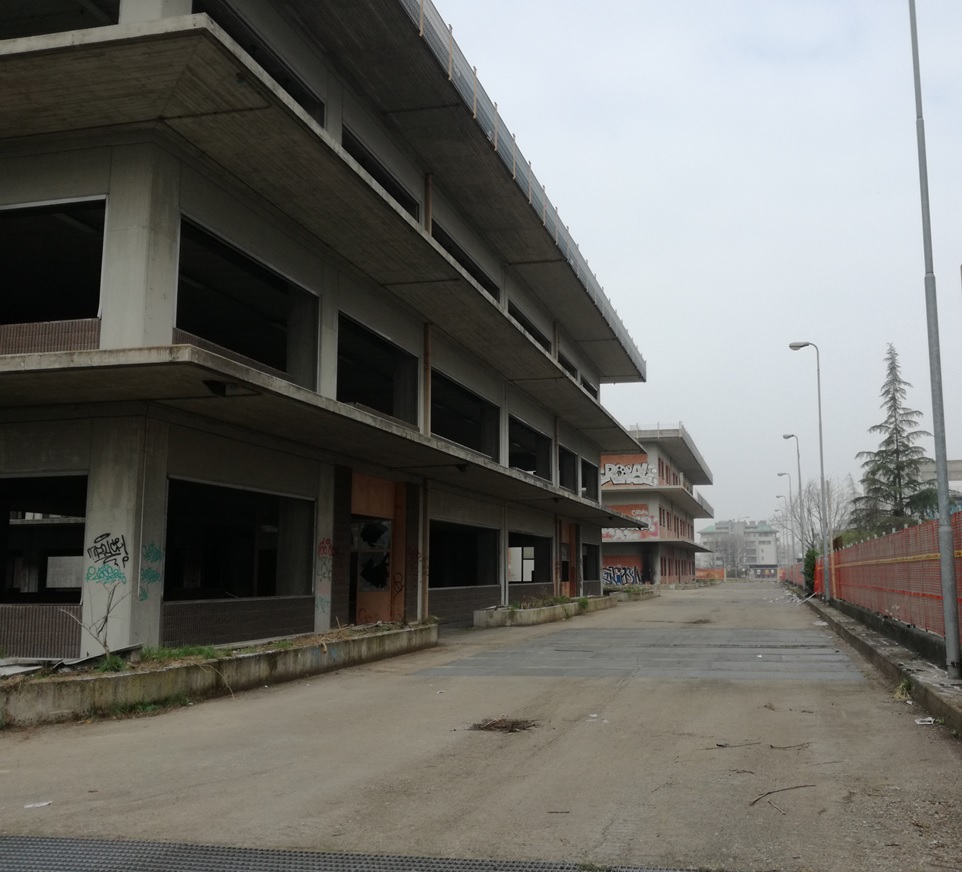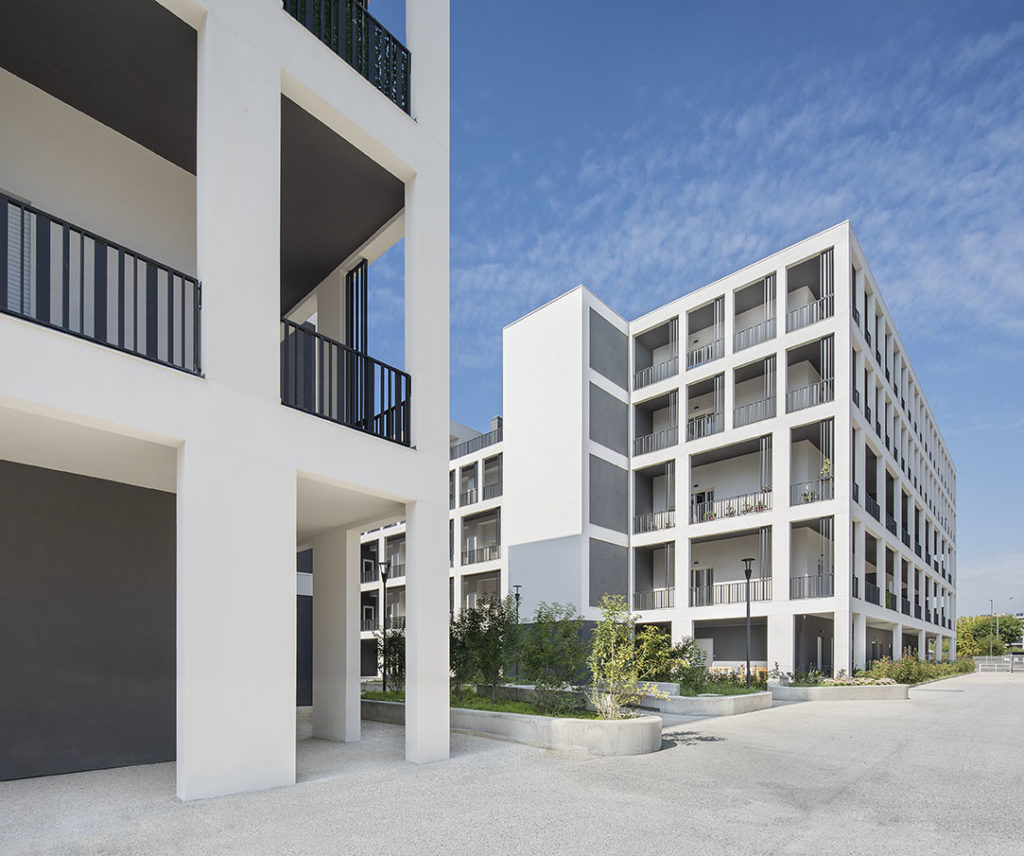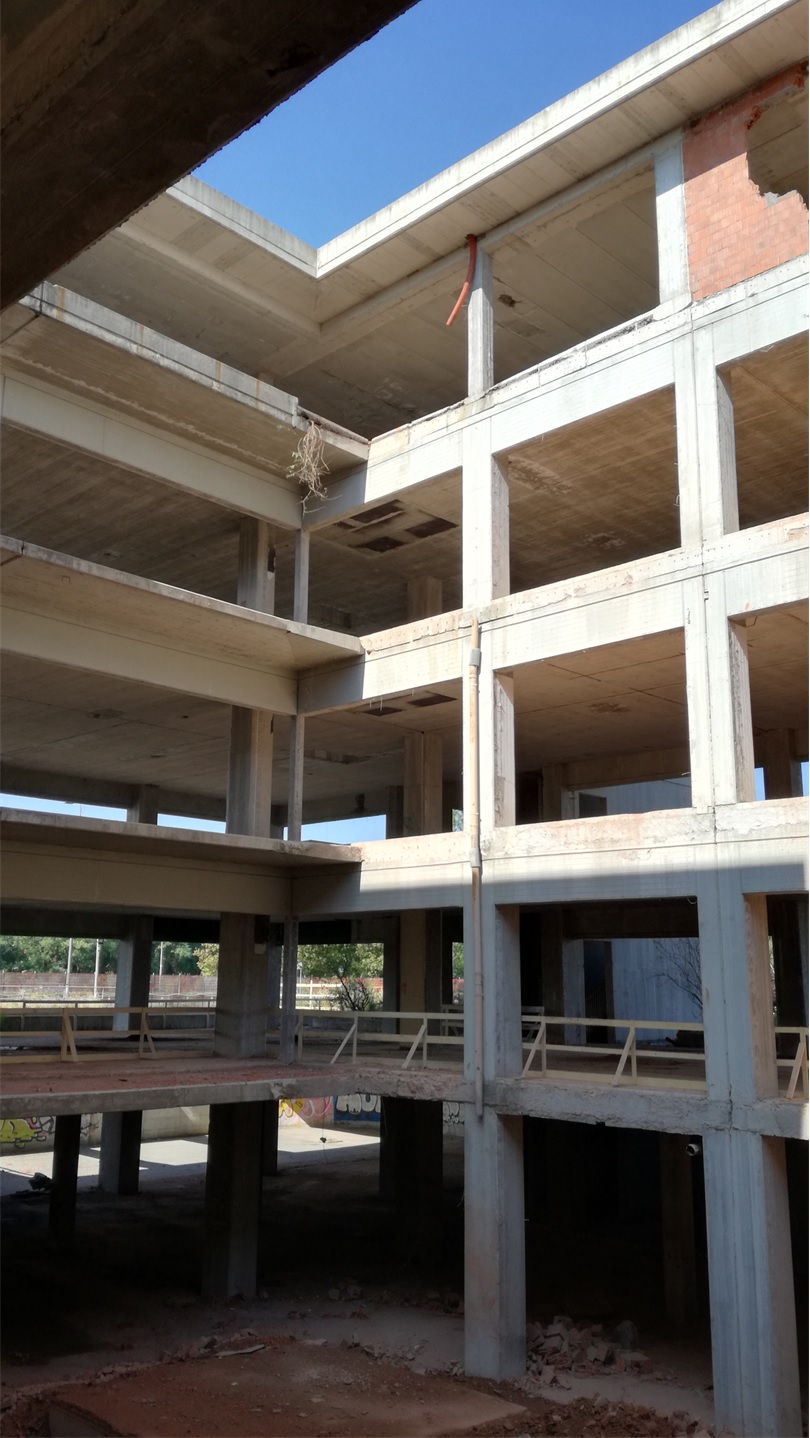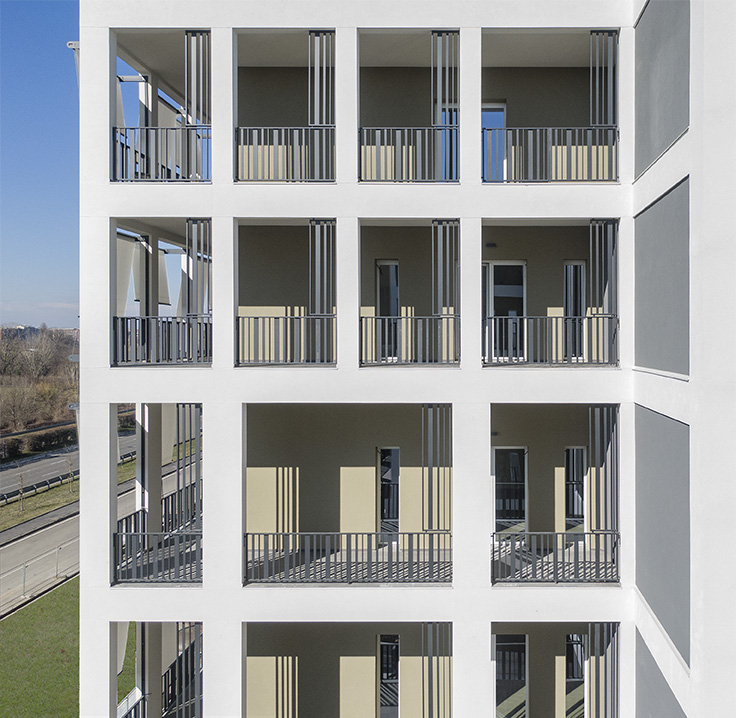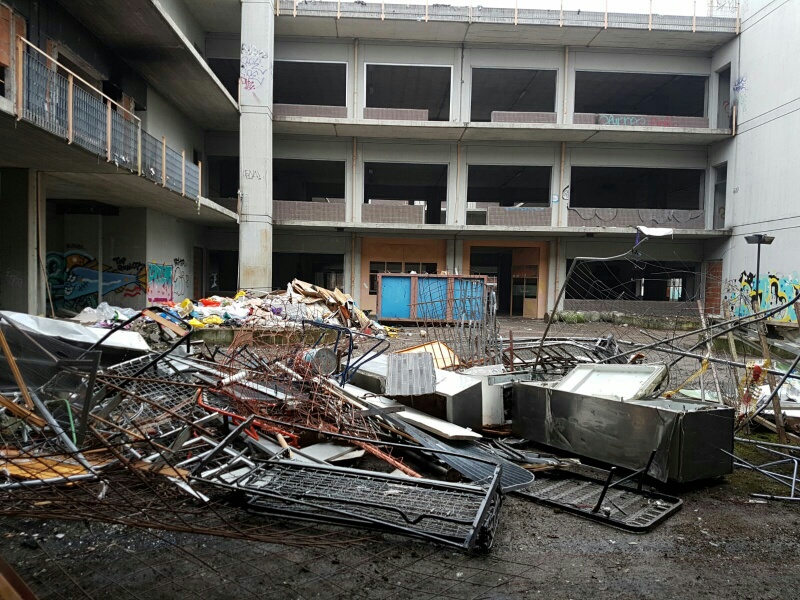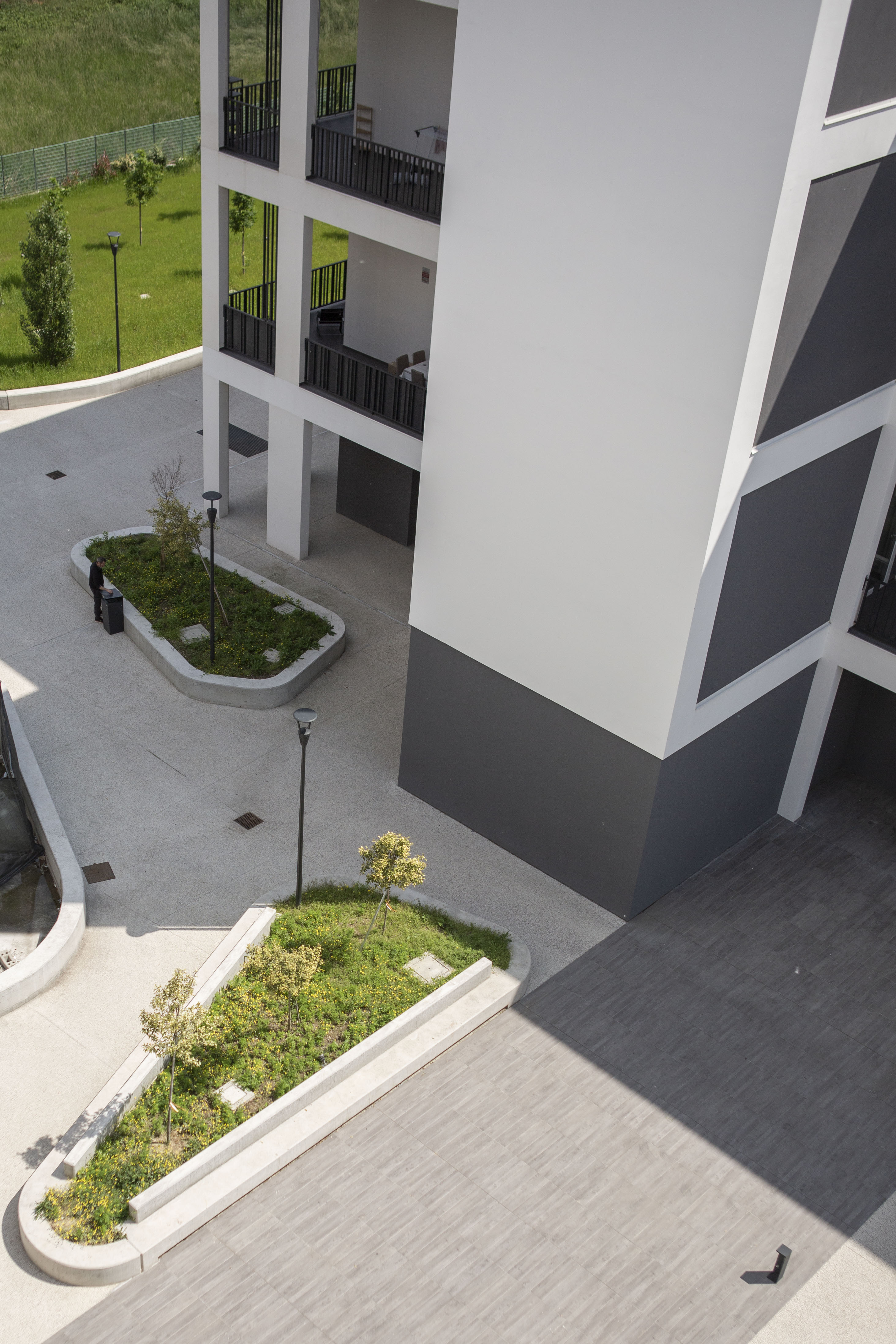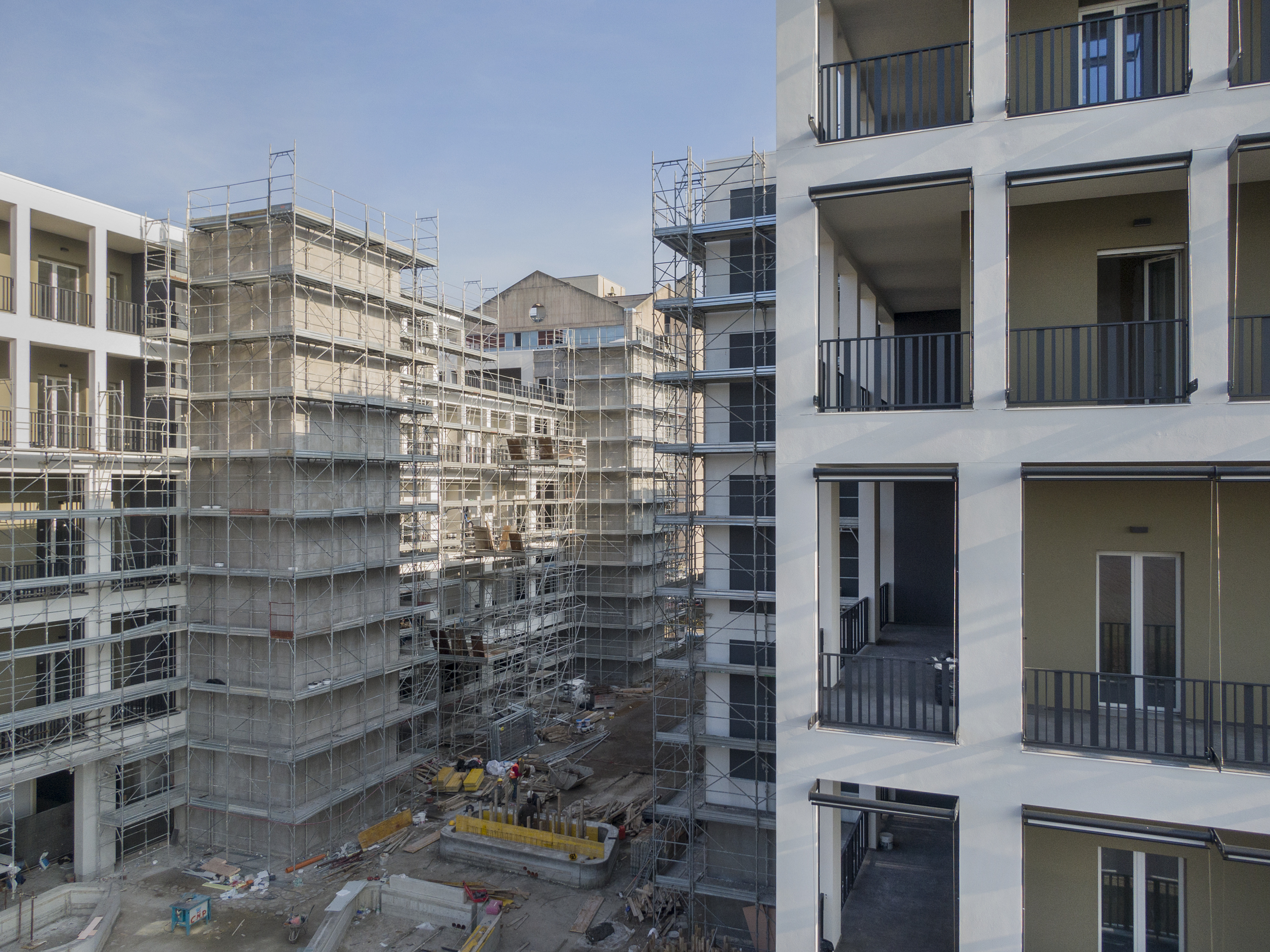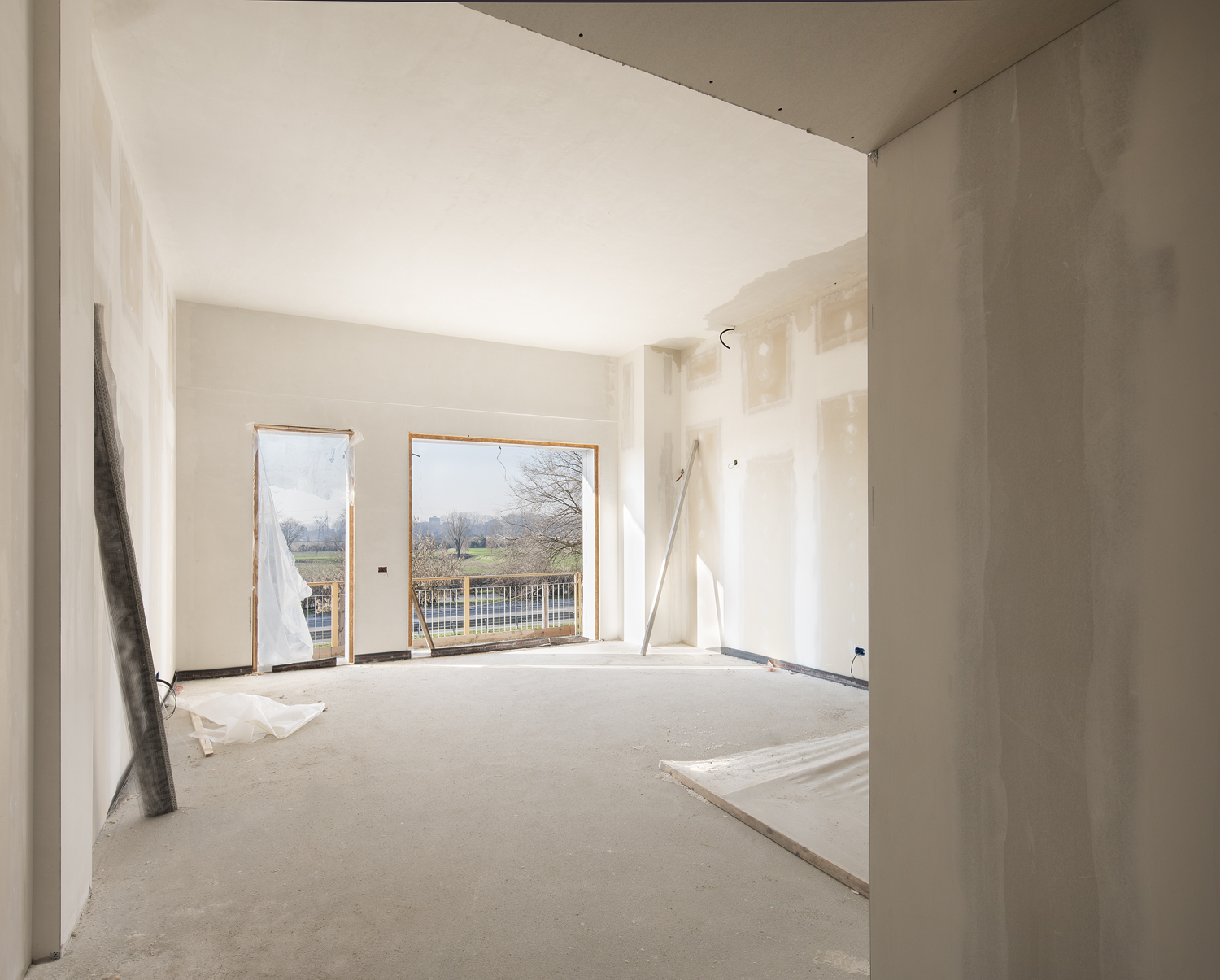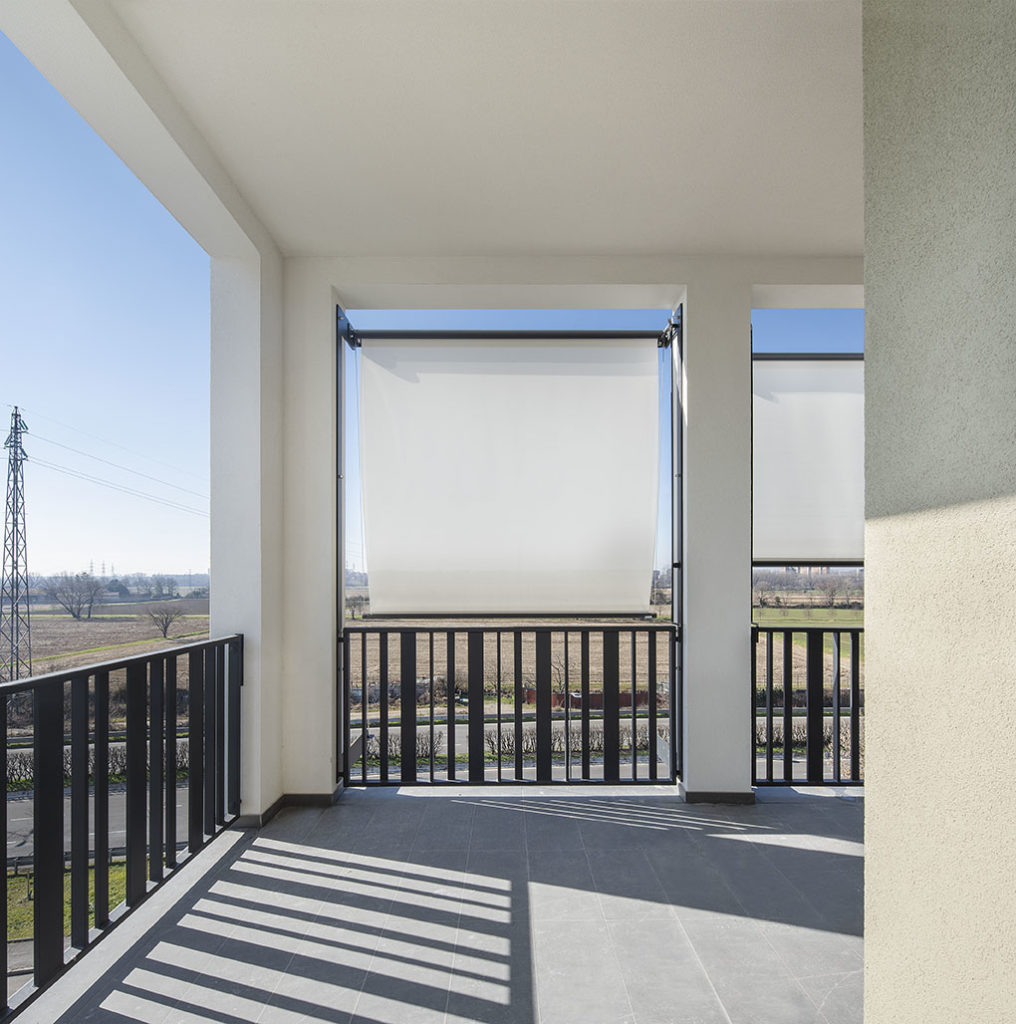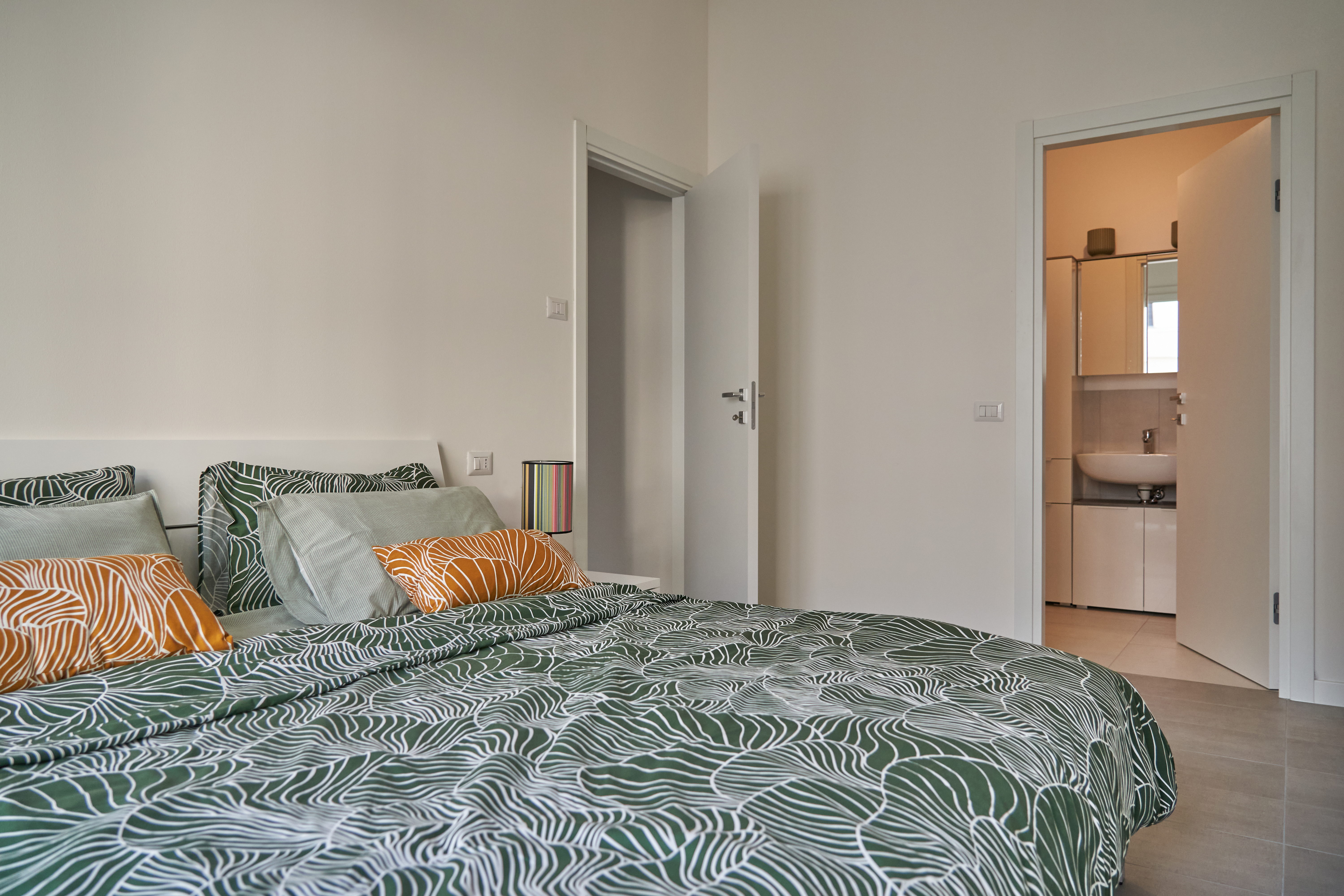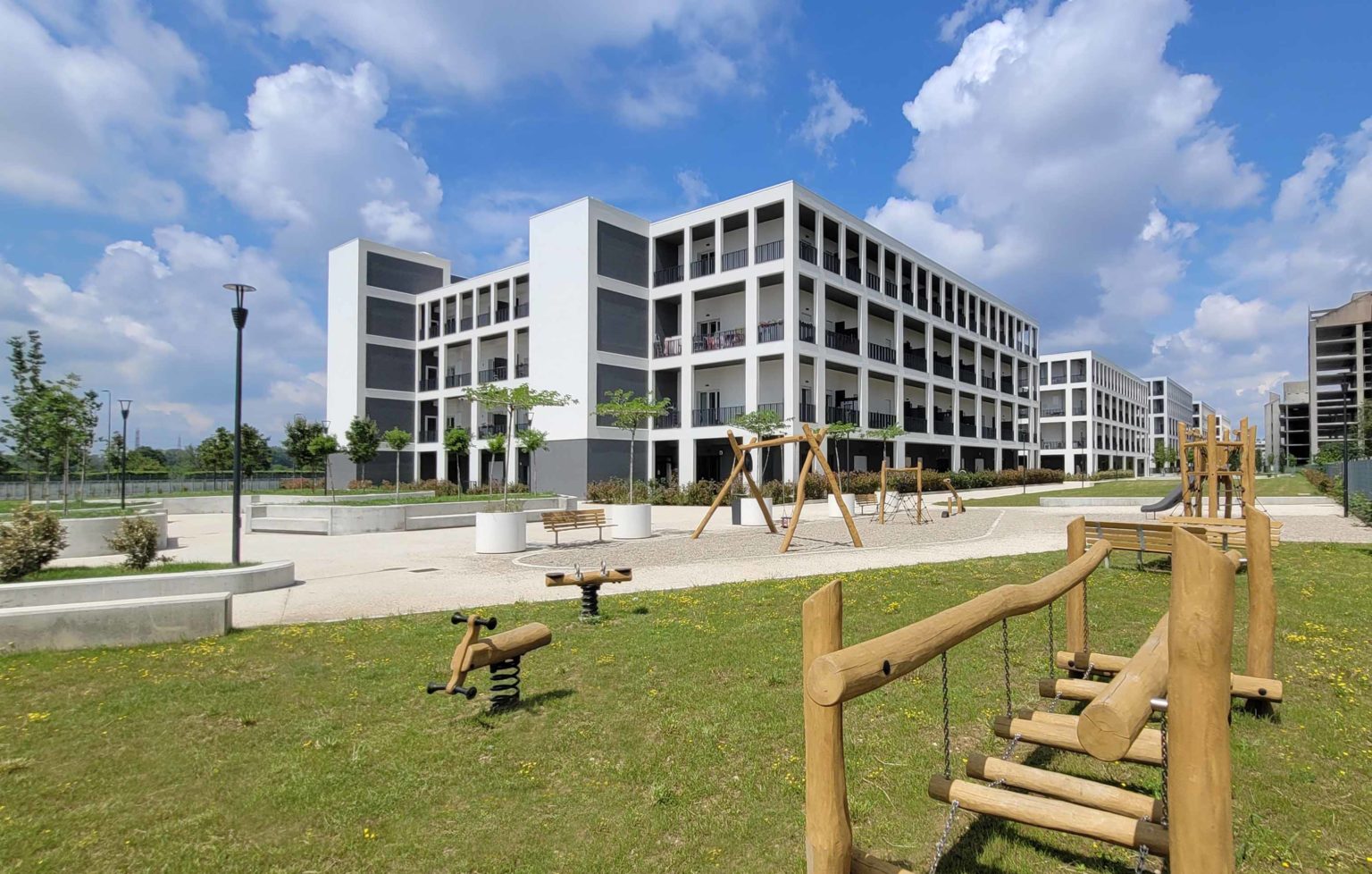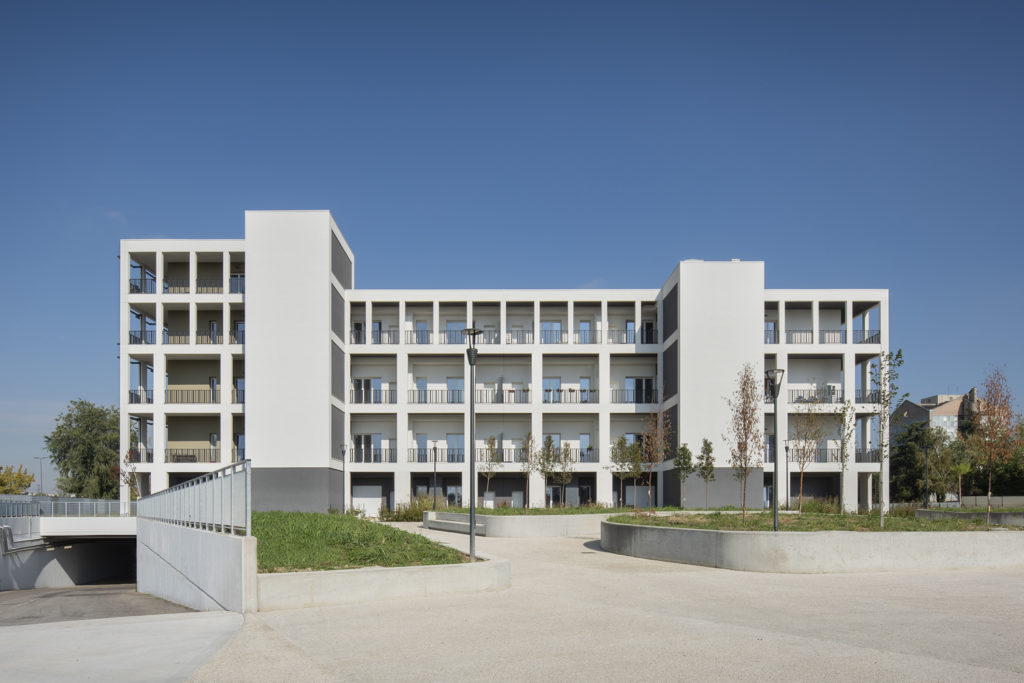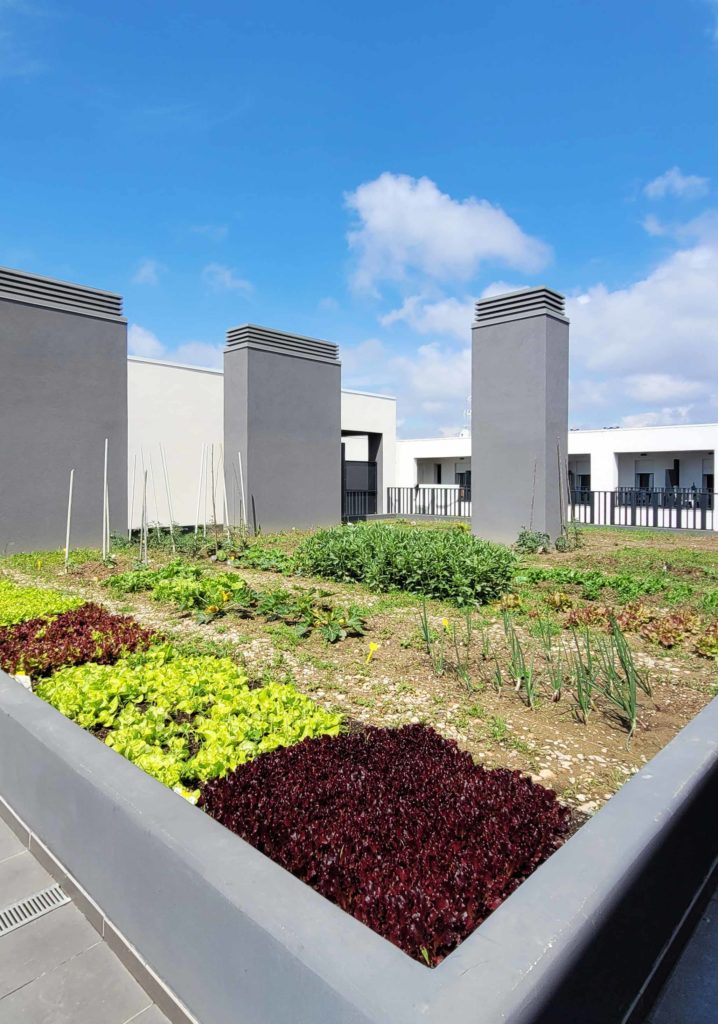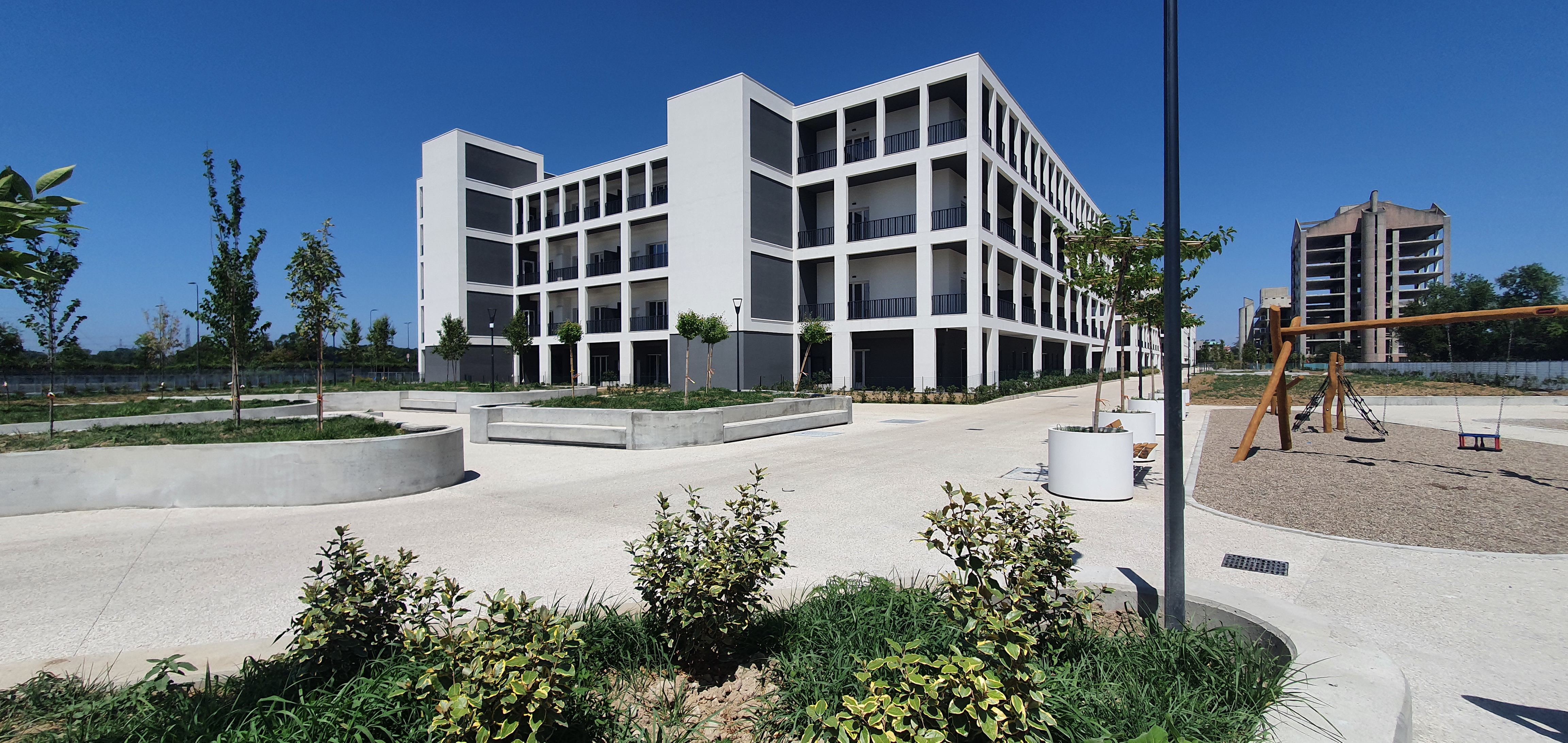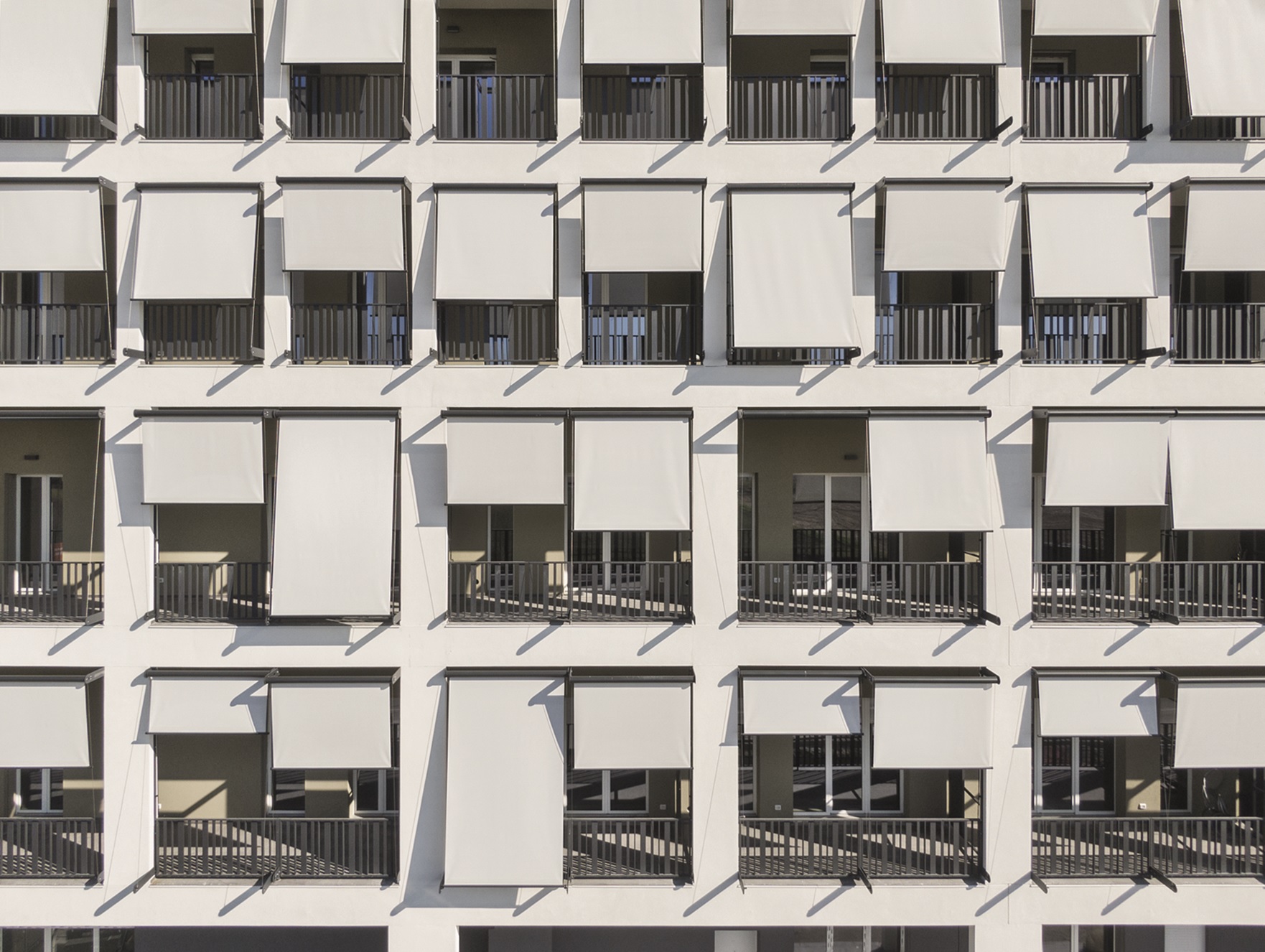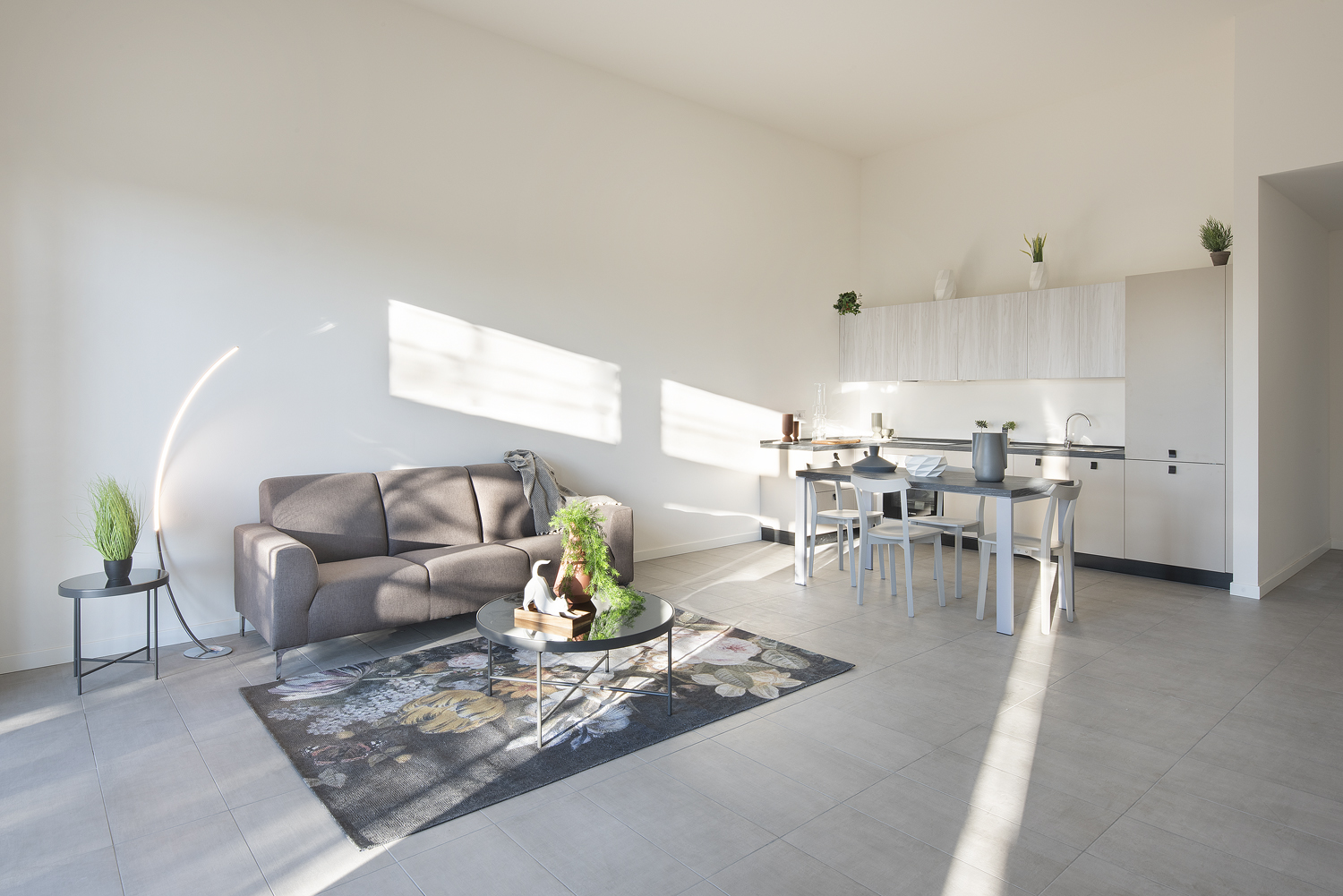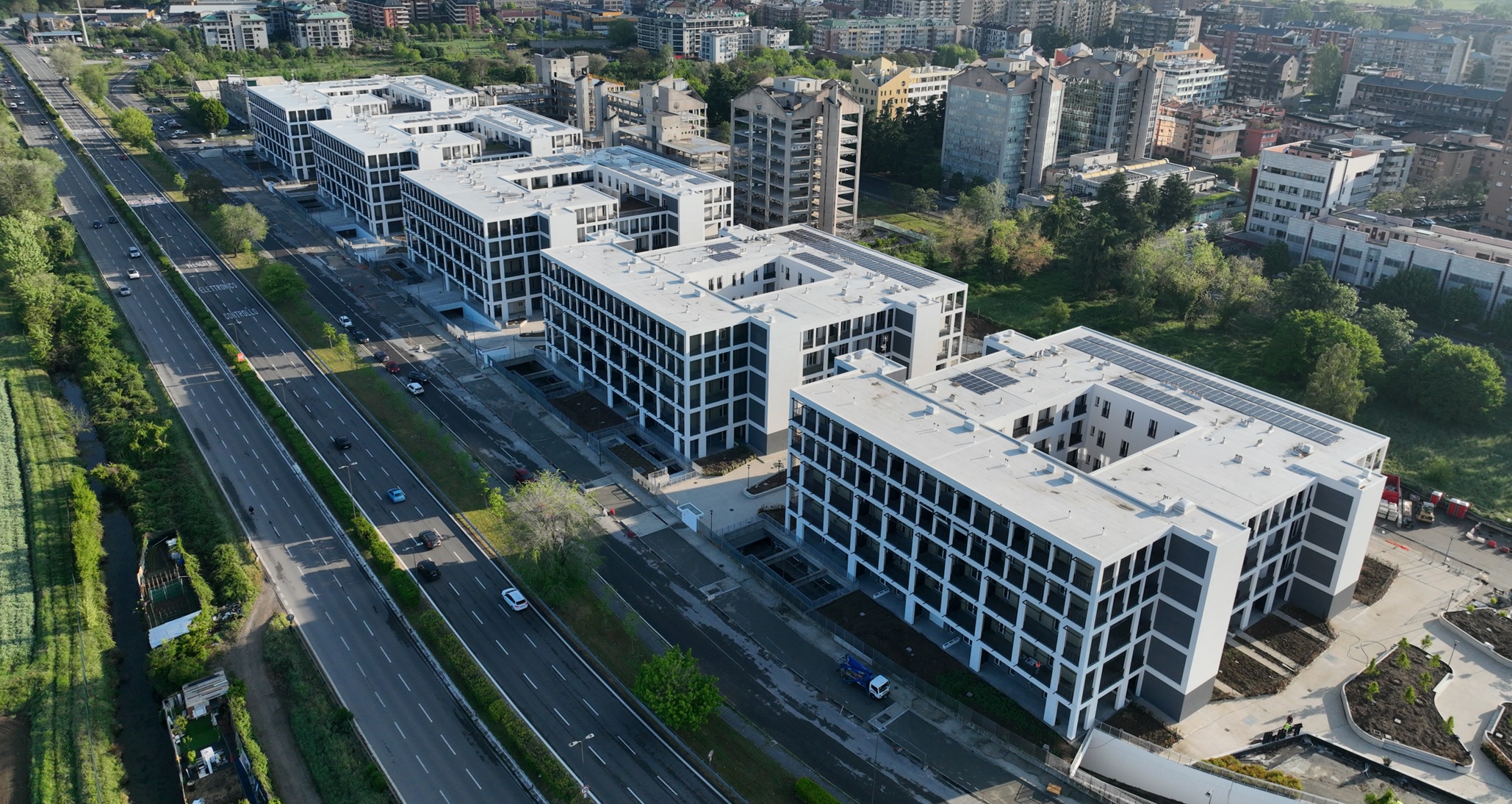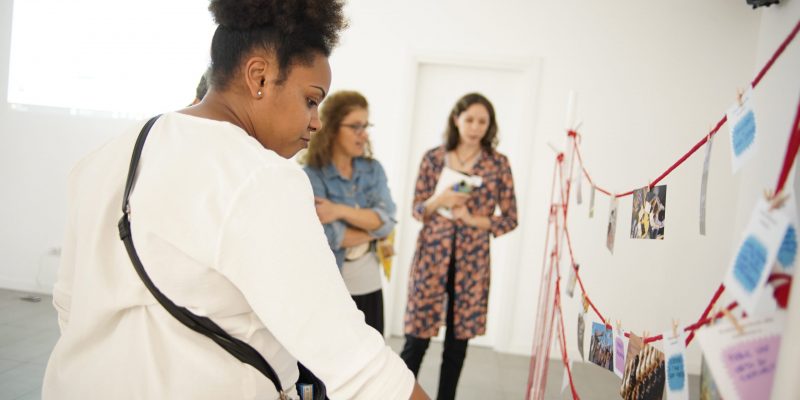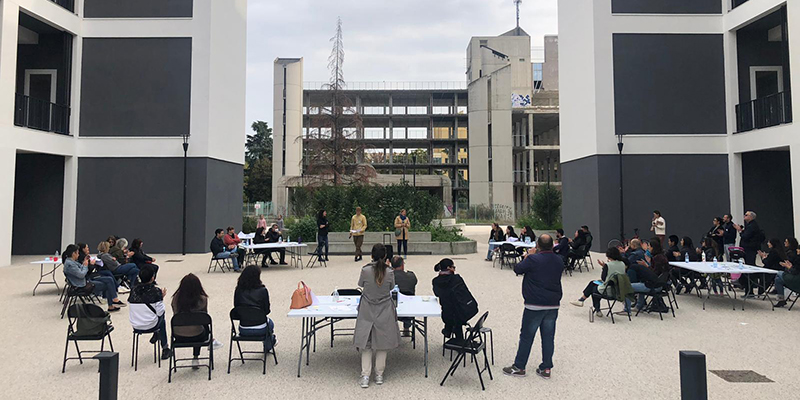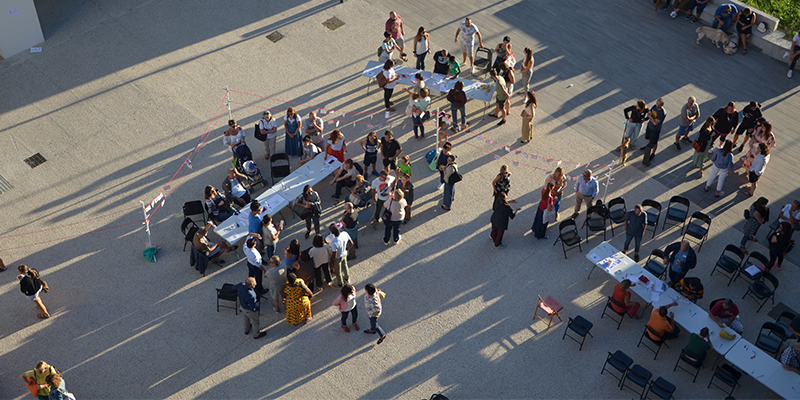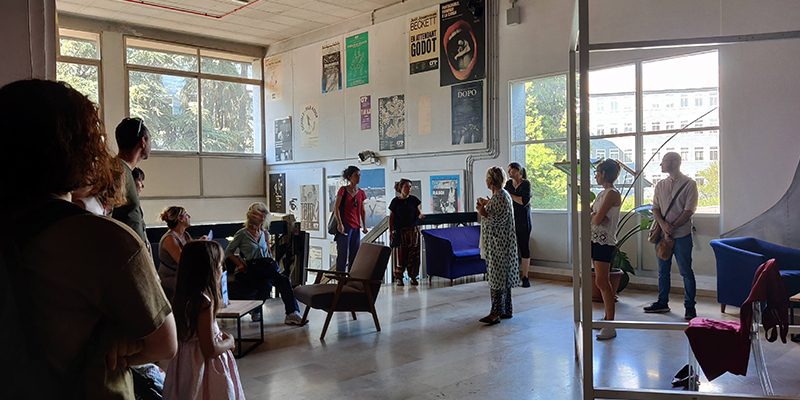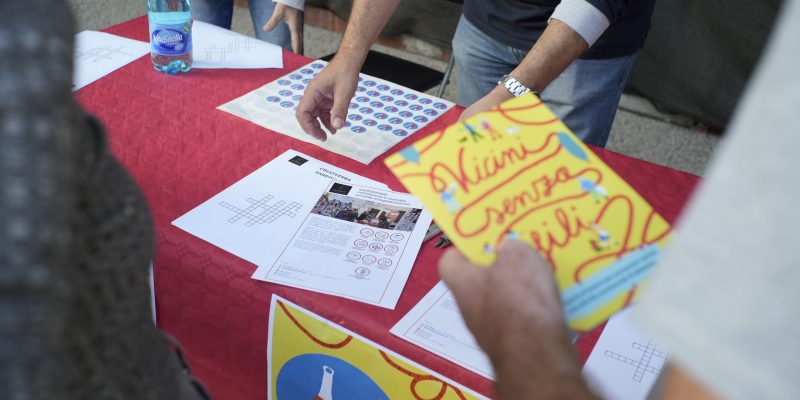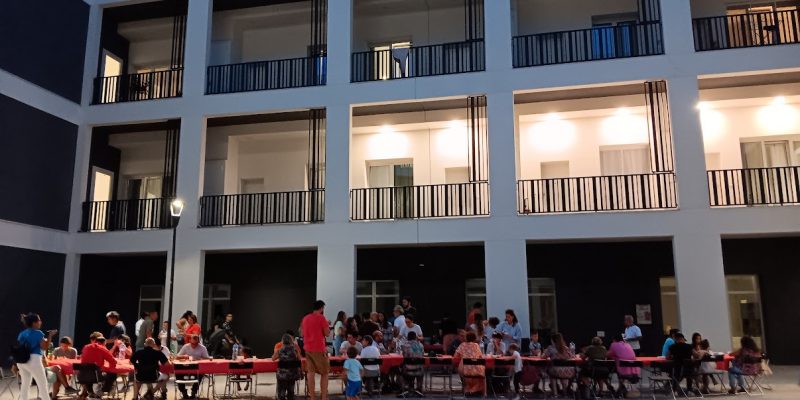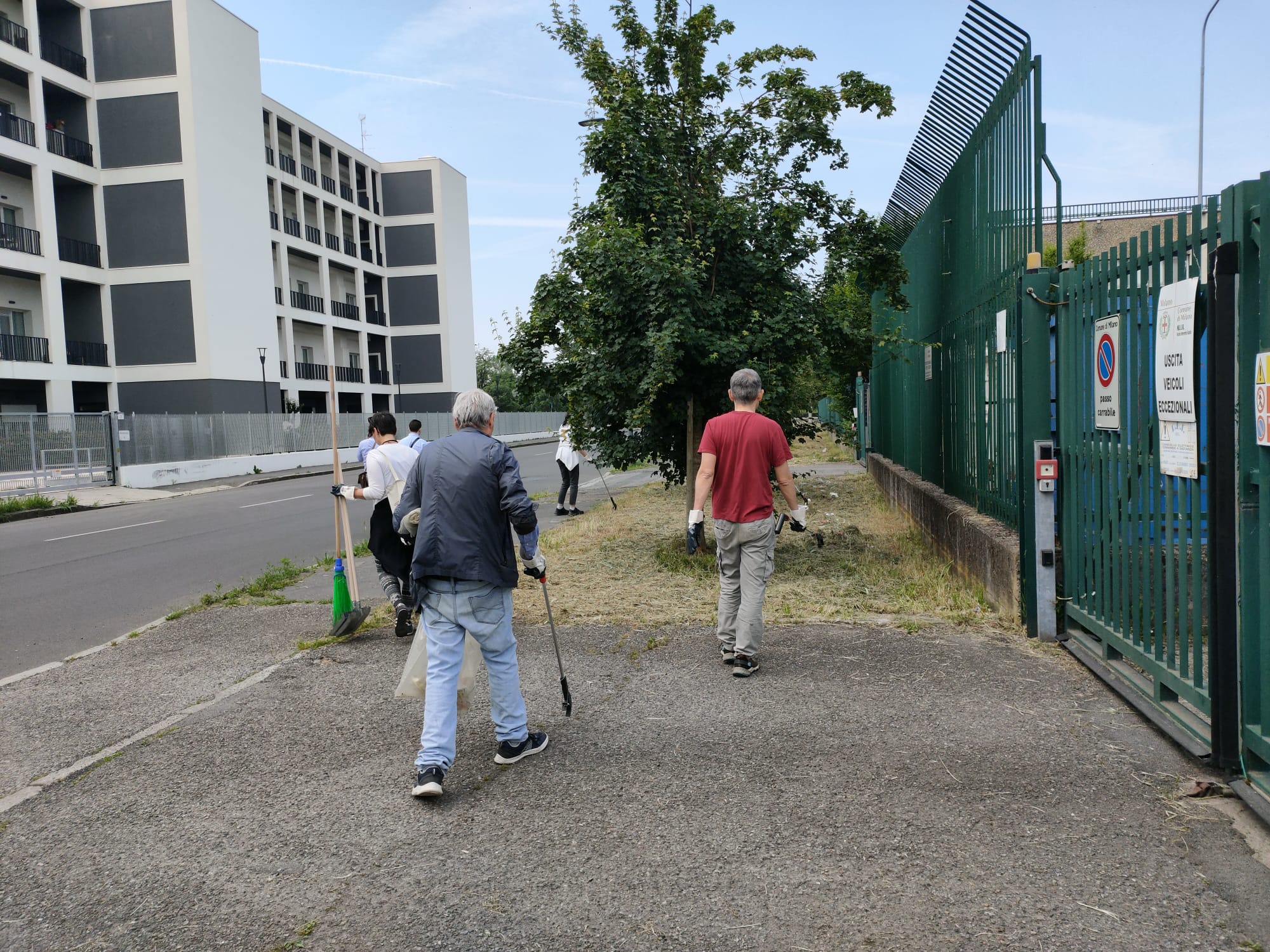Prioritising the places and people that need it the most
5Square
5Square Via Antegnati Milano
5Square is an urban regeneration project in Milan revitalizing an area abandoned for over 30 years to address the city's housing crisis through affordable, sustainable living. By repurposing existing buildings, 5Square exploits the original architectural qualities, with high ceilings, deep balconies, expansive windows, and enhances them through a new modular façade and dynamic elements. Careful design of shared spaces and community engagement fosters an eco-friendly, collaborative community.
Italy
Local
City of Milan
Mainly urban
It refers to a physical transformation of the built environment (hard investment)
Yes
2022-03-29
No
No
Yes
Yes
Yes
As a representative of an organisation, in partnership with other organisations
5Square is an innovative residential transformation project in Milan, Italy, repurposing abandoned buildings into modern, sustainable living spaces. The 468 new apartments are available at affordable prices. They are dedicated to the so-called “grey area,” a growing portion of the population that cannot afford adequate housing options on the private market, which in cities like Milan are increasingly expensive. The project was developed with an integrated approach to planning, combining attention to architectural quality on all scales—from single apartments to transitional spaces, to shared areas and open spaces— focusing on community engagement and collaborative living. Architecturally, the challenge was to preserve the original features while enhancing a building of limited aesthetic value, originally designed to accommodate office spaces. The project maximizes architectural potential by leveraging high ceilings and deep balconies that wrap around the buildings, ensuring high-quality apartments with ample natural light and ventilation. To optimize circulation, the four existing stairwells were retained, while the balconies were repurposed as external corridors. The narrow internal courtyards were expanded by removing existing inner balconies, enhancing airflow and daylight access. A new modular façade grid was introduced, adding rhythm and depth to the elevation. The ground floor of the project was designed to host a mix of spaces and functions: from shared spaces such as the Common Living Space, a flexible and multifunctional space functioning as a community hub for the residents of the new district and the surrounding neighbourhood, to local services and commercial activities. This mix allows for the creation of a vital, active, and safe neighbourhood. Furthermore, a Community Start-up Path facilitates the sharing of common and open spaces and the design of collaborative activities.
Affordability
Urban regeneration
Community engagement
Sustainable living
Circular economy
5Square exemplifies sustainable urban regeneration by transforming a 30‐year abandoned commercial complex in Milan into a lively, eco‐friendly housing community. The project’s sustainability objectives have been achieved through a multi-pronged approach:
- decarbonization & energy efficiency: by integrating renewable energy sources (geothermal, photovoltaic, and solar thermal) into its fully electric heating and cooling systems, 5Square reduces its carbon footprint to just 1.93 kgCO₂eq/m²/year. Advanced insulation measures (A2 energy class, thermo-acoustic barriers, and sunshades) further minimize energy consumption, aligning with ambitious decarbonization targets.
- circular economy: the innovative Circular Housing® initiative allows residents to rent furniture and appliances, significantly reducing waste and extending the life cycle of household items. This practice not only promotes resource efficiency but also serves as a replicable model for sustainable consumption.
- community resilience & urban renewal: repurposing an underutilized urban space into 468 affordable housing units—with integrated green spaces, common spaces managed by residents, and essential community services—creates an inclusive, connected, and resilient neighbourhood. This transformation rejuvenates the local area while addressing contemporary social and environmental challenges.
By seamlessly combining cutting-edge energy solutions, circular economy practices, and community-focused design, 5Square sets a new benchmark for sustainable urban redevelopment. The project demonstrates that environmental stewardship and social inclusivity can coexist, offering a replicable blueprint for sustainable cities worldwide.
- decarbonization & energy efficiency: by integrating renewable energy sources (geothermal, photovoltaic, and solar thermal) into its fully electric heating and cooling systems, 5Square reduces its carbon footprint to just 1.93 kgCO₂eq/m²/year. Advanced insulation measures (A2 energy class, thermo-acoustic barriers, and sunshades) further minimize energy consumption, aligning with ambitious decarbonization targets.
- circular economy: the innovative Circular Housing® initiative allows residents to rent furniture and appliances, significantly reducing waste and extending the life cycle of household items. This practice not only promotes resource efficiency but also serves as a replicable model for sustainable consumption.
- community resilience & urban renewal: repurposing an underutilized urban space into 468 affordable housing units—with integrated green spaces, common spaces managed by residents, and essential community services—creates an inclusive, connected, and resilient neighbourhood. This transformation rejuvenates the local area while addressing contemporary social and environmental challenges.
By seamlessly combining cutting-edge energy solutions, circular economy practices, and community-focused design, 5Square sets a new benchmark for sustainable urban redevelopment. The project demonstrates that environmental stewardship and social inclusivity can coexist, offering a replicable blueprint for sustainable cities worldwide.
5Square’s design philosophy centres on transforming an underutilized urban relic into a landmark of contemporary aesthetics and vibrant community life. The project masterfully balances the preservation of historical elements with a modern reinterpretation. Through an innovative re-functionalization process by Barreca & La Varra, the once-abandoned structures were stripped to their core and reimagined, allowing the creation of spacious, light-filled living areas with a standardized, refined facade that lends coherence and elegance to the complex. A key aesthetic objective was to ensure that the built environment itself contributes to a quality living experience. To this end, 5Square integrates expansive communal gardens, thoughtfully designed public spaces, and flexible common spaces managed by residents, that invite cultural exchange and foster social interaction. These design elements not only enhance visual appeal but also create dynamic environments where sustainable living, culture, and community converge. The project’s emphasis on open spaces, green corridors, and pedestrian-friendly pathways underlines its commitment to improving urban liveability and fostering a sense of place. By repurposing an abandoned commercial site into a hub of residential, social and cultural activity, 5Square sets an exemplary standard in urban regeneration. It demonstrates how innovative design can revitalize neglected spaces, offering residents a high-quality, engaging living environment that promotes both individual well-being and collective cultural identity. This integration of aesthetic excellence and experiential quality positions 5Square as a benchmark for future urban redevelopment projects.
5Square champions inclusion by reimagining urban living to cater to the diverse needs of its community. By transforming long-abandoned office buildings into 468 affordable housing units, the project addresses critical social challenges and ensures that high-quality housing is accessible to all. Its design principles are centred on accommodating a wide range of residents—from families and young professionals to seniors and vulnerable groups. In fact, 24 apartments are managed by third-sector associations and have been used for fragile targets, such as persons with disabilities, single-parent families, and those facing poverty. The project promotes inclusion through a focus on community engagement and community management. When residents arrive in the new district, they join a Community Start-up path to facilitate encounters and collaboration among neighbours, enabling them to self-organize and manage common spaces. Residents can rely on a Social Manager, essential for daily life, who handles both building maintenance and community management. 5Square integrates essential public services, such as a polyclinic, family counselling centre, nursery, social bakery, and gym, fostering an ecosystem that supports well-being and social cohesion. The project's location provides great access to schools, healthcare, and transportation, making it easy for residents to connect with the broader community. Additionally, the innovative Circular Housing® initiative provides rental options for furniture and appliances, promoting a circular economy that reduces waste and lowers living costs. This not only eases the financial burden on residents but also encourages responsible consumption practices. By seamlessly merging affordable housing, accessible design, and inclusive services, 5Square sets an exemplary benchmark for urban regeneration. It demonstrates that thoughtful, inclusive design can transform underutilized spaces into liveable, equitable communities where everyone can thrive.
From the project's inception, 5Square has placed citizens and civil society at the heart of its development process. By promoting collaborative living and providing essential services, 5Square not only meets the current housing demands but also creates a resilient, connected community prepared for future challenges.
Indeed, when moving into 5Square, residents were offered not only an apartment at an affordable price but also the opportunity to access a series of communal spaces and to take part in the construction of activities and services collectively designed by the community of inhabitants. For this to happen, they were invited to a series of meetings and laboratories constituting the Community Start-Up. The path generates positive impacts at the local level and contributes to building a strong network of local relations by providing the residents with spaces and occasions to meet, collaborate and collectively design activities and services that can be beneficial for the community of residents and for the neighbourhood.
Additionally, in 2023/2024, Redo SGR and Fondazione Housing Sociale, in collaboration with Social Managers, conducted a housing survey among residents to evaluate project goals and management activities. The findings guided future strategies regarding community well-being, a balanced sense of care and vitality, community-led events, social cohesion, and responsible living. The survey was instrumental in shaping a project that went beyond providing modern housing.
By actively integrating citizen feedback into both the design and management strategies, 5Square has set a new standard for inclusive urban regeneration—one that emphasizes accessibility, affordability, and a responsive governing system that continues to evolve with its community’s needs.
Indeed, when moving into 5Square, residents were offered not only an apartment at an affordable price but also the opportunity to access a series of communal spaces and to take part in the construction of activities and services collectively designed by the community of inhabitants. For this to happen, they were invited to a series of meetings and laboratories constituting the Community Start-Up. The path generates positive impacts at the local level and contributes to building a strong network of local relations by providing the residents with spaces and occasions to meet, collaborate and collectively design activities and services that can be beneficial for the community of residents and for the neighbourhood.
Additionally, in 2023/2024, Redo SGR and Fondazione Housing Sociale, in collaboration with Social Managers, conducted a housing survey among residents to evaluate project goals and management activities. The findings guided future strategies regarding community well-being, a balanced sense of care and vitality, community-led events, social cohesion, and responsible living. The survey was instrumental in shaping a project that went beyond providing modern housing.
By actively integrating citizen feedback into both the design and management strategies, 5Square has set a new standard for inclusive urban regeneration—one that emphasizes accessibility, affordability, and a responsive governing system that continues to evolve with its community’s needs.
The 5Square project was developed by Redo Sgr on behalf of the Fondo Immobiliare di Lombardia Comparto Uno, the first closed-end real estate fund dedicated to affordable housing in Lombardy. This project extends the value chain composed of investors, project management and development, by incorporating new stakeholders such as the City of Milan and Municipio 5 through public-private partnerships and the local mobility company to enhance public transportation to benefit its inhabitants. Additionally, the presence of investors like Fondazione Cariplo fosters also the involvement of third-sector entities, contributing to the creation of community services. The project also involves important institutions like the Fondo Investimenti per l’Abitare (FIA) managed by CDP Immobiliare Sgr, Banco BPM, Generali Italia, Intesa Sanpaolo, and Unicredit. Fondazione Housing Sociale served as the Technical Social Advisor, with D&D, Barreca & La Varra, Arching, Ariatta, and Ebner Associates as designers, and Planet Smart City as the smart consultant. Euromilano handled the marketing phase of the apartments, while Spazio Aperto Servizi and Deltaecopolis were identified as social managers. The Circular Housing project partners include EIT Climate KIC, Politecnico di Milano, Erion, Compass Rent, Bosch BSH, Colombini Group, and Composad.
Through the Community Start-Up path, and thanks to the constant presence of the Social Manager, the projects also activated strong networks and collaborations with local stakeholders. Additionally, the presence of a mix of local services and neighbourhood commercial activities at the ground floor of the intervention, such as a polyclinic, family counselling centre, and social bakery, fosters local well-being and ensures that the benefits of the project extend into the wider neighbourhood.
Through the Community Start-Up path, and thanks to the constant presence of the Social Manager, the projects also activated strong networks and collaborations with local stakeholders. Additionally, the presence of a mix of local services and neighbourhood commercial activities at the ground floor of the intervention, such as a polyclinic, family counselling centre, and social bakery, fosters local well-being and ensures that the benefits of the project extend into the wider neighbourhood.
The design and implementation of the 5Square project reflected a multidisciplinary approach, integrating various fields such as architecture, urban planning, engineering, social sciences, and environmental sustainability.
Urban regeneration was a central theme, transforming an abandoned commercial complex into a sustainable residential area. This process involved extensive interaction between urban planners, architects, and environmental consultants to integrate green spaces and community services seamlessly into the urban fabric.
The added value of this multidisciplinary interaction was the creation of a cohesive, sustainable community that not only provided affordable housing but also fostered social cohesion and environmental stewardship. The collaborative approach ensured that the project addressed various aspects of urban living, from energy efficiency and waste reduction to social inclusion and community building. By repurposing abandoned buildings, the project not only revitalized a neglected area but also set a precedent for future urban regeneration initiatives, demonstrating that sustainable and inclusive development is achievable through interdisciplinary collaboration.
Urban regeneration was a central theme, transforming an abandoned commercial complex into a sustainable residential area. This process involved extensive interaction between urban planners, architects, and environmental consultants to integrate green spaces and community services seamlessly into the urban fabric.
The added value of this multidisciplinary interaction was the creation of a cohesive, sustainable community that not only provided affordable housing but also fostered social cohesion and environmental stewardship. The collaborative approach ensured that the project addressed various aspects of urban living, from energy efficiency and waste reduction to social inclusion and community building. By repurposing abandoned buildings, the project not only revitalized a neglected area but also set a precedent for future urban regeneration initiatives, demonstrating that sustainable and inclusive development is achievable through interdisciplinary collaboration.
The 5Square project stands out as a pioneering initiative in the realm of urban regeneration, affordability, and sustainable living. Unlike mainstream actions that often focus on new constructions, 5Square revitalized five abandoned buildings in Milan's Vigentino district, transforming them into a social housing community.
This approach not only preserved existing structures but also minimized environmental impact, embodying the principles of circular economy. The project's affordability is another innovative aspect, offering 468 residential units at significantly reduced costs compared to market rates, thus addressing the pressing issue of housing attainability. The integration of Circular Housing® services, developed in collaboration with EIT Climate KIC and Politecnico di Milano, further underscores its innovative character. This service allows residents to rent furniture and appliances, reducing waste and promoting sustainability by extending the lifecycle of household items.
Additionally, the Community Start-Up pathway and the presence of the Social Manager represent important elements of innovation, providing the residents with spaces and occasions to meet, collaborate, collectively design activities and services and self-organize to manage the common spaces. Community management and engagement are further supported by a Neighbourhood App, enabling residents to book common areas, and promote collaborative activities, while at the same time monitoring and improving their energy consumption. This digital tool fosters a sense of belonging and facilitates efficient use of shared resources.
Overall, 5Square exemplifies a holistic and forward-thinking approach to urban development, setting a new standard for sustainable, inclusive, and affordable housing solutions.
This approach not only preserved existing structures but also minimized environmental impact, embodying the principles of circular economy. The project's affordability is another innovative aspect, offering 468 residential units at significantly reduced costs compared to market rates, thus addressing the pressing issue of housing attainability. The integration of Circular Housing® services, developed in collaboration with EIT Climate KIC and Politecnico di Milano, further underscores its innovative character. This service allows residents to rent furniture and appliances, reducing waste and promoting sustainability by extending the lifecycle of household items.
Additionally, the Community Start-Up pathway and the presence of the Social Manager represent important elements of innovation, providing the residents with spaces and occasions to meet, collaborate, collectively design activities and services and self-organize to manage the common spaces. Community management and engagement are further supported by a Neighbourhood App, enabling residents to book common areas, and promote collaborative activities, while at the same time monitoring and improving their energy consumption. This digital tool fosters a sense of belonging and facilitates efficient use of shared resources.
Overall, 5Square exemplifies a holistic and forward-thinking approach to urban development, setting a new standard for sustainable, inclusive, and affordable housing solutions.
The 5Square project employed a comprehensive and innovative methodology to transform five abandoned buildings in Milan's Vigentino district into a social housing community. The technical solutions for repurposing these buildings involved stripping them down to their structural skeletons and redesigning them to create new surfaces and a uniform facade. This approach not only preserved the existing structures but also minimized waste and environmental impact. The project achieved high-density construction by optimizing the available space, resulting in 468 residential units within a 34,650 sqm plot. This density minimizes the impact on land use and promotes efficient urban development.
A key focus was affordability, with the project offering housing units at significantly reduced costs compared to market rates. This was achieved through a combination of public and private funding and innovative financial models that ensured long-term affordability for residents. The inclusion of Circular Housing® services, which allow residents to rent furniture and appliances, further reduced costs and promoted sustainability.
To prevent urban sprawl, the project integrated a mix of commercial and residential services within the development. The ground floor of the buildings includes spaces for social interaction, relaxation, play, and sports, as well as essential services such as a family counselling centre, a polyclinic, and retail areas. This mix of uses creates a self-sufficient community, reducing the need for residents to travel long distances for daily needs and fostering a sense of belonging and social cohesion.
Overall, the 5Square project exemplifies a holistic approach to urban regeneration. It combines technical innovation, high-density construction, affordability, and mixed-use development to create a sustainable and inclusive community.
A key focus was affordability, with the project offering housing units at significantly reduced costs compared to market rates. This was achieved through a combination of public and private funding and innovative financial models that ensured long-term affordability for residents. The inclusion of Circular Housing® services, which allow residents to rent furniture and appliances, further reduced costs and promoted sustainability.
To prevent urban sprawl, the project integrated a mix of commercial and residential services within the development. The ground floor of the buildings includes spaces for social interaction, relaxation, play, and sports, as well as essential services such as a family counselling centre, a polyclinic, and retail areas. This mix of uses creates a self-sufficient community, reducing the need for residents to travel long distances for daily needs and fostering a sense of belonging and social cohesion.
Overall, the 5Square project exemplifies a holistic approach to urban regeneration. It combines technical innovation, high-density construction, affordability, and mixed-use development to create a sustainable and inclusive community.
The 5Square project in Milan showcases several replicable and transferable elements that can benefit other urban contexts and groups. The project's core methodology of reusing and repurposing abandoned buildings into sustainable communities can be applied to similar urban regeneration efforts worldwide. Also, the innovative approach of stripping buildings to their structural skeletons and redesigning them to create community-oriented environments demonstrates a sustainable and resource-efficient model. The integration of energy-efficient technologies, such as geothermal, photovoltaic, and solar thermal systems, along with smart energy management, can significantly reduce environmental impact and operational costs, making it a viable option for other regions aiming to achieve sustainability goals. The Circular Housing® service, which allows residents to rent furniture and appliances, promotes a circular economy by extending the lifecycle of household items and reducing waste. This model can be adopted by other housing projects to enhance affordability and sustainability. Additionally, the project's emphasis on social inclusion, with diverse housing options for families, young singles, couples, and elderly individuals, as well as dedicated units for vulnerable groups, fosters a strong sense of community and social cohesion. This emphasis could be implemented in various European cities facing similar challenges where the need for sustainable and affordable housing solutions is pressing.
Redo's experience with multiple urban regeneration and affordable housing projects in Milan and the Lombardy region further showcases the replicability of the business model of implementing rental rates lower than market prices, making housing more accessible. Examples of Redo's projects include Figino, Cenni, Quintiliano, Breda, Padova, Merezzate, Moneta, and Rizzoli, all of which demonstrate successful urban regeneration and affordable housing initiatives.
Redo's experience with multiple urban regeneration and affordable housing projects in Milan and the Lombardy region further showcases the replicability of the business model of implementing rental rates lower than market prices, making housing more accessible. Examples of Redo's projects include Figino, Cenni, Quintiliano, Breda, Padova, Merezzate, Moneta, and Rizzoli, all of which demonstrate successful urban regeneration and affordable housing initiatives.
The 5Square project in Milan addresses critical global challenges related to the housing crisis by providing innovative local solutions. The project re-functionalizes five abandoned buildings, transforming them into 468 affordable housing units for families, young singles, couples, and elderly people with care needs. This approach directly tackles the housing crisis, which is exacerbated by rising housing costs and the housing cost overburden rate in cities. According to Eurostat, in 2021, 10.4% of the EU population in cities faced housing cost overburden, with rates as high as 32.4% in Greece and 21.9% in Denmark. In Italy, the score is 8.5%.
By offering affordable housing options at significantly reduced costs (48% lower than market rates), 5Square alleviates financial pressure on residents and contributes to social equity.
The project also addresses the issue of urban decay and public safety by revitalizing a previously abandoned and degraded area, transforming it into a liveable community with shared spaces, public services, and local commerce. This not only improves the quality of life for residents but also enhances the overall social fabric of the neighbourhood. The integration of green spaces, pedestrian paths, and community services fosters a sustainable and inclusive urban environment, promoting social interaction and community building.
By providing a local solution to the global housing crisis, 5Square sets a precedent for future urban development projects, demonstrating that it is possible to create affordable, sustainable, and socially inclusive housing in urban areas. This holistic approach not only addresses immediate housing needs but also contributes to long-term social and economic stability, making it a model for other cities facing similar challenges.
By offering affordable housing options at significantly reduced costs (48% lower than market rates), 5Square alleviates financial pressure on residents and contributes to social equity.
The project also addresses the issue of urban decay and public safety by revitalizing a previously abandoned and degraded area, transforming it into a liveable community with shared spaces, public services, and local commerce. This not only improves the quality of life for residents but also enhances the overall social fabric of the neighbourhood. The integration of green spaces, pedestrian paths, and community services fosters a sustainable and inclusive urban environment, promoting social interaction and community building.
By providing a local solution to the global housing crisis, 5Square sets a precedent for future urban development projects, demonstrating that it is possible to create affordable, sustainable, and socially inclusive housing in urban areas. This holistic approach not only addresses immediate housing needs but also contributes to long-term social and economic stability, making it a model for other cities facing similar challenges.
The 5Square project in Milan has achieved significant results and impacts in terms of affordability and urban regeneration. By repurposing five abandoned office buildings, the project regenerated a surface area of 34,650 sqm, preventing further urban decay in the Vigentino neighbourhood. This transformation has provided 468 affordable housing units, catering to diverse groups including families, young singles, couples, and elderly individuals with care needs. The project's affordability is evident in the rental rates, which are significantly lower than market prices. For instance, the rental rate in Via Antegnati is €68/sqm/year compared to the market rate of €135/sqm/year, resulting in a 50% savings for residents. These savings allow families to allocate more resources towards essential needs such as healthcare, and nutrition enhancing their overall quality of life. The Circular Housing® service further contributes to affordability by offering rental options for furniture and appliances, reducing the financial burden on residents and promoting a circular economy. This service has demonstrated substantial cost savings, with the potential to halve the environmental impact compared to traditional models. Additionally, the neighbourhood app, "App di Quartiere," facilitates energy consumption monitoring and management, enabling residents to save on energy costs through smart controls. The project has also fostered a strong sense of community and social cohesion by integrating public services, local commerce, and shared spaces, benefiting both direct and indirect beneficiaries.

